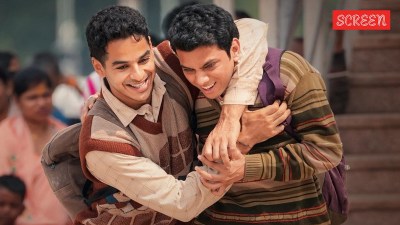Home Ministers
An all-woman panchayat has put this village in Sangli,Maharashtra,on the road to prosperity. But not too long ago,the panchayat and its politics were a zealously guarded male preserve
An all-woman panchayat has put this village in Sangli,Maharashtra,on the road to prosperity. But not too long ago,the panchayat and its politics were a zealously guarded male preserve
Kavathe Piran is a village of wrestlers. Every day,till late in the evening,men and boys in red loin cloths wrestle at the village akhada,their bodies caked in red mud. But outside the akhada,its a very unlikely set of people who flex their musclesthe 17 members of the all-woman panchayat in Kavathe Piran.
Every morning,the women set out from their homesafter the children are sent off to schools,the cooking is done and a quick rangoli is made outside the doorto the panchayat office. Like Neeta Bhosle and Alka Jakhlekar had done this morning. The two women have had a busy day so farlooking at papers related to a land dispute,meeting villagers who have come to complain about inflated electricity bills and doing the rounds of the village,before they get to go home at 4 p.m.
The change swept through Kavathe Piranand through its fields of sugarcane,wheat,capsicum and soya bean spread over 4,000 acresfive years ago. Till then,women in Kavathe Piran,in Sangli district of Maharashtra,were not allowed to step out of their homes without a veil. The panchayat and its politics,of course,were zealously guarded male preserves. The village had its problemsalcohol,gutka,crime,domestic violence,and so on. All through this,the women of Kavathe Piran had no voice of their own.
But things changed in 2003,during an innocuous cleanliness campaign in the village. We decided to take part in the campaign,the Gramswachchata Abhiyaan. That was the first time when all the women realised they could do so much more if only they had better control. So we decided to stand up for our rights. Our village even won the first prize at a cleanliness competition organised by the government. That gave us the confidence to step out and speak up, says Jyoti Patil,deputy sarpanch of Kavathe Piran.
For all the machoism that was on display earlier,the men of the village didnt object when the women said they should be given a chance to turn things around. So when elections took place in 2005,the 17 women led by sarpanch Sujata Chowgule won unopposed. And there has been no looking back.
In the first year,we decided to ban alcohol in the village. Till then,we had over 19 bhattis that wrecked lives in the villages. We destroyed all of them and threw away alcohol worth Rs 2.5-3 lakh. We are also the first village to have declared a ban on gutka much before the government banned it, says sarpanch Chowgule.
The panchayat then focused on development: it helped people set up flour mills,dairies,kirana stores,restaurants and stalls in the village,ensuring that people got jobs in the process. The panchayat earned some well-deserved goodwill.
Those in the liquor business and the men who worked for them had been doing that for over 20 years. When we banned alcohol,they told us they had been deprived of their livelihood. We decided to give them shops owned by the panchayat to run kirana stores and other businesses, says Chowgule.
This panchayat works better than any panchayat we have had here. They have no political affiliations so its easier for them to get work done,irrespective of which party comes to power in the state, says Ashok Patil,a villager who says the women leaders are here to stay.
Till this panchayat was set up,nobody thought much about toilets. But now,this village of over 16,000 people has one toilet for every house.
Papita Laxman Patil,a teacher in the village,says,The panchayat did simple things that meant a lot. It helped us realise that we can make better use of our rights.
There were days,says Papita,when she couldnt walk the half-a-kilometre distance from her home to the panchayat without a male escort. I was a teacher then too,but my money went to my husband and he was never happy with it. I know of a lot of women who would take loans from moneylenders at high rates of interest simply to hand the money over to their husbands,who would then use that money to drink, she says.
But now,the panchayat has helped form Self-Help Groups for women and several women in the village have not only earned enough to be able to spend on their childrens weddings,but have also bought buffaloes and cows and invested in the dairy business.
As the village gets ready to celebrate Gudi Padwa,the harvest festival,the rangolis are bigger and the homes are beautifully decorated. Thats when you notice the name on each doorits of the woman of the house.
- 01
- 02
- 03
- 04
- 05































